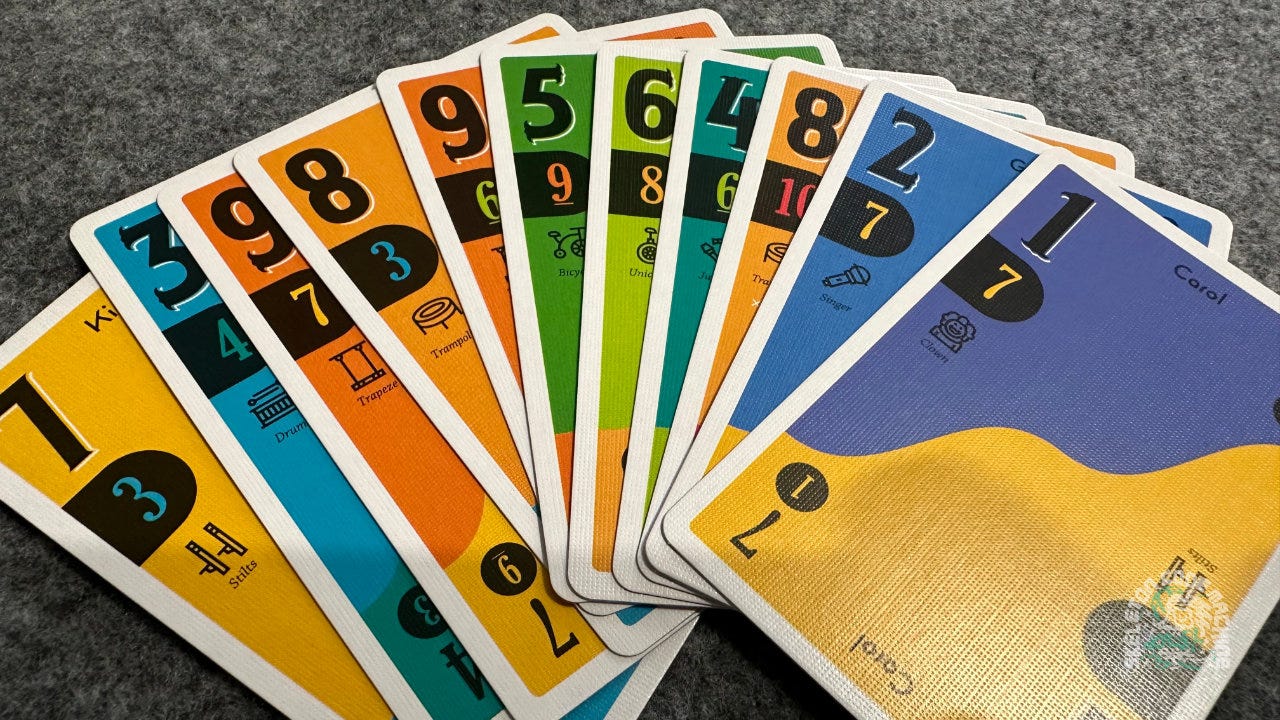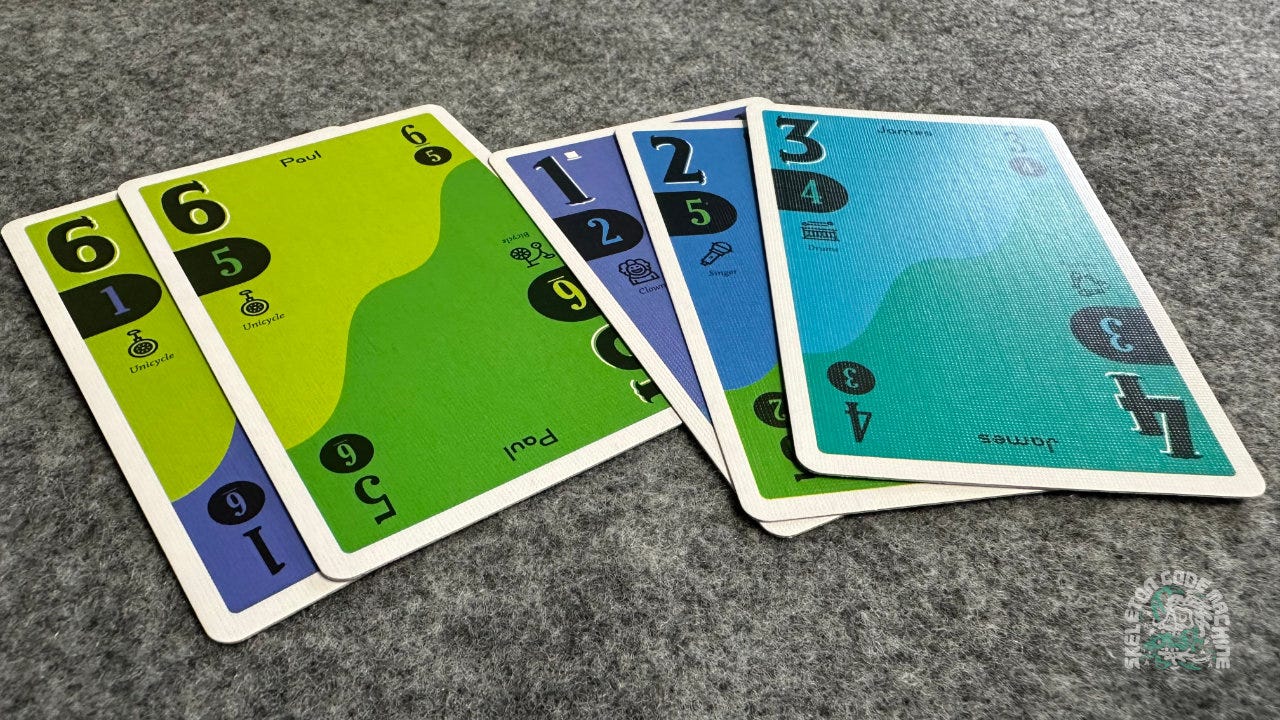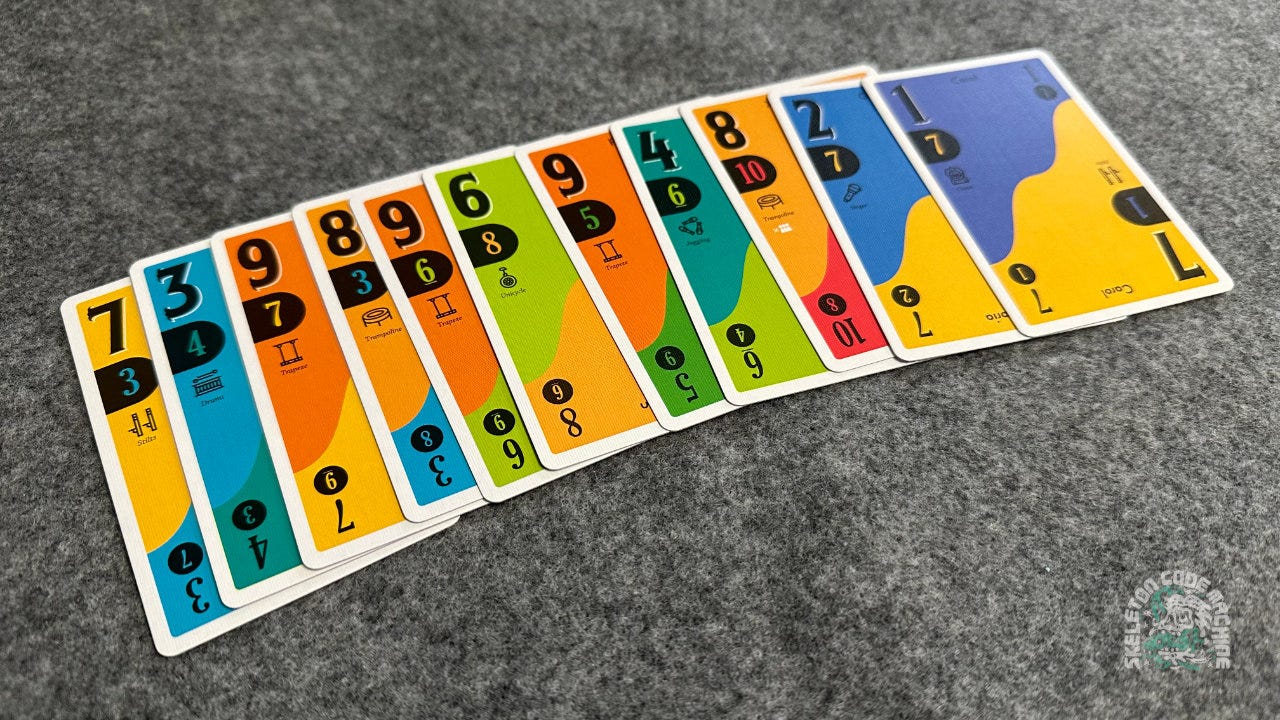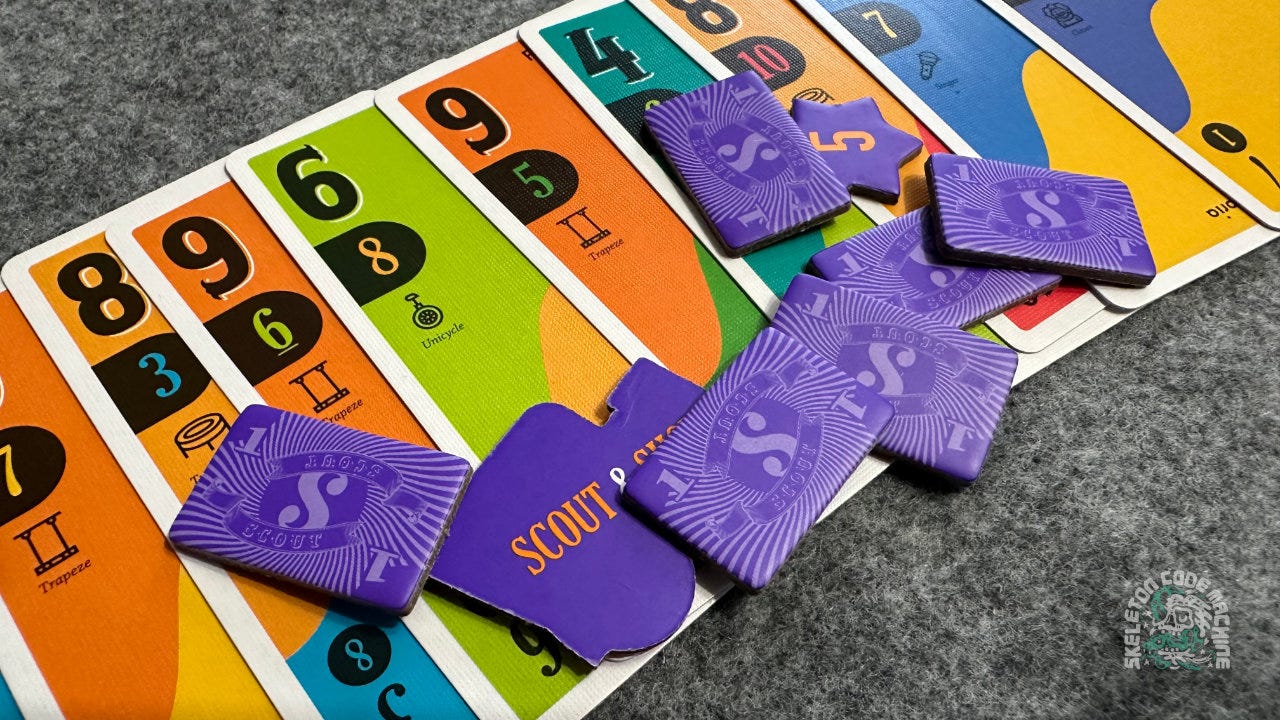Ladder climbing
Scouting circus talent and climbing ladders with SCOUT
Welcome to Skeleton Code Machine, a weekly publication that explores tabletop game mechanisms. Spark your creativity as a game designer or enthusiast, and think differently about how games work. Check out Dungeon Dice and 8 Kinds of Fun to get started!
Recently we looked at Input/Output Randomness (Part 1, Part 2) and how it might apply to both board games and TTRPGs.
This week, we are taking a look at ladder climbing card games. Specifically, SCOUT by Oink Games.
Ladder climbing
Here’s a basic definition of ladder climbing mechanisms:
Players play one card, or a set of related cards. Subsequently, players must play cards of an equal or higher value of the same set already played. The last player to successfully play wins the right to start a new round of Climbing.
Ladder climbing games usually differ from trick-taking games in a few ways:
More than one card can be played each time.
They continue until all players consecutively pass.
The goal is to shed your cards rather than gain new cards.
Examples include Tichu (Hostettler, 1991) and The Great Dalmuti (Garfield, 1995). I’ve seen some debate as to whether or not UNO (Robbins, 1971) counts as a ladder climbing game.
SCOUT (Kei Kajino, 2019) is a ladder climbing game that has become very popular lately. I was lucky enough to pick up a copy at the Oink Games booth at PAXU, and try it over the weekend!
SCOUT
In Scout you’ll try to beat the active set of cards on the table with pairs and runs of numbered cards from your hand. What is unusual about SCOUT is that you can never rearrange your hand!
You can, however, add cards via one of the three available actions on your turn:
Show: Play a card or cards that beat the active set of cards on the table. To be stronger, you need more cards or a better type of cards or finally higher numbers on the cards. Collect the previously active set of cards as points.
Scout: If you can’t play any cards stronger than the active set, you can scout. Take any one card from the active set and add it to your hand anywhere you’d like. The person who played the active set gets one point.
Scout & Show: Once per game you can do both! Take a card via scouting and then immediately play cards to the table.
The round ends when either someone runs out of cards after showing, or everyone has scouted because they couldn’t play any cards.
Play as many rounds as there are players and that’s the game!
Other uses for ladder climbing
If you check out the top ranked ladder climbing games on BGG, you’ll see that almost all of them are abstract games. They might have some sort of theme applied, much like SCOUT is ostensibly about circuses, but in general they are not thematic games.
But could this mechanism be used in thematic board games and TTRPGs? Perhaps!
I could imagine a few places this could be employed:
A magic system where you have to beat the previous cards played. This would mean each spell is harder to cast than the last one until you are forced to perform some sort of reset.
Combat that is based on multiple players or foes playing cards to determine either indirect (e.g. initiative) or direct (e.g. hits and damage) effects.
Possibly resource management and gear depletion where you experience loss when you can’t beat the previous active set. This would be akin to the Usage Dice or Gear Dice in Fallen.
The challenge would be to make these systems thematic and not pull the players out of the game. It can be a fine line between interesting mechanisms and turning a TTRPG into a board game.
Learn more
Here are some helpful ladder climbing resources:
Scout Review with Zee Garcia by The Dice Tower
You should be playing SCOUT by Shut Up & Sit Down
Top Five Ladder Climbing Games by Game Like a Mother
My Top 10 Favorite Games with Trick Taking & Ladder Climbing by Stonemaier Games
One thing that stands out after watching these videos is how many ladder climbing games might seem similar. If you know of some particularly innovative ones, please let me know!
Conclusion
Some things to think about:
Ladder climbing requires cards: I was unsuccessful in finding examples of ladder climbing games that didn’t use cards. Perhaps a similar system could be made using dice. If you have examples, please comment below!
Ladder climbing feels like an abstract system: Building this into a thematic game might be difficult, but perhaps not impossible. While there might be limited design space for ladder climbing games themselves, I think this mechanism could be included in other games.
Ladder climbing can be fast: The speed at which SCOUT can be played stood out to me. As someone who doesn’t usually like abstract card games, it just moved so quickly and had satisfying combos that I really enjoyed it.
Let’s do a poll! Do you think ladder climbing mechanisms have potential uses in thematic board games and TTRPGs?
— E.P. 💀
P.S. Skeleton Code Machine t-shirts are available at the Exeunt Press Shop!
Skeleton Code Machine is a production of Exeunt Press. If you want to see what else is happening at Exeunt Press, check out the Exeunt Omnes newsletter.







Actually, the Motobushido rpg uses Ladder climbing in duels!
Not quite Ladder Climbing, but Peter's Two Sheep Dogs uses meeples in a trick taking way.
https://boardgamegeek.com/boardgame/264984/peters-two-sheep-dogs